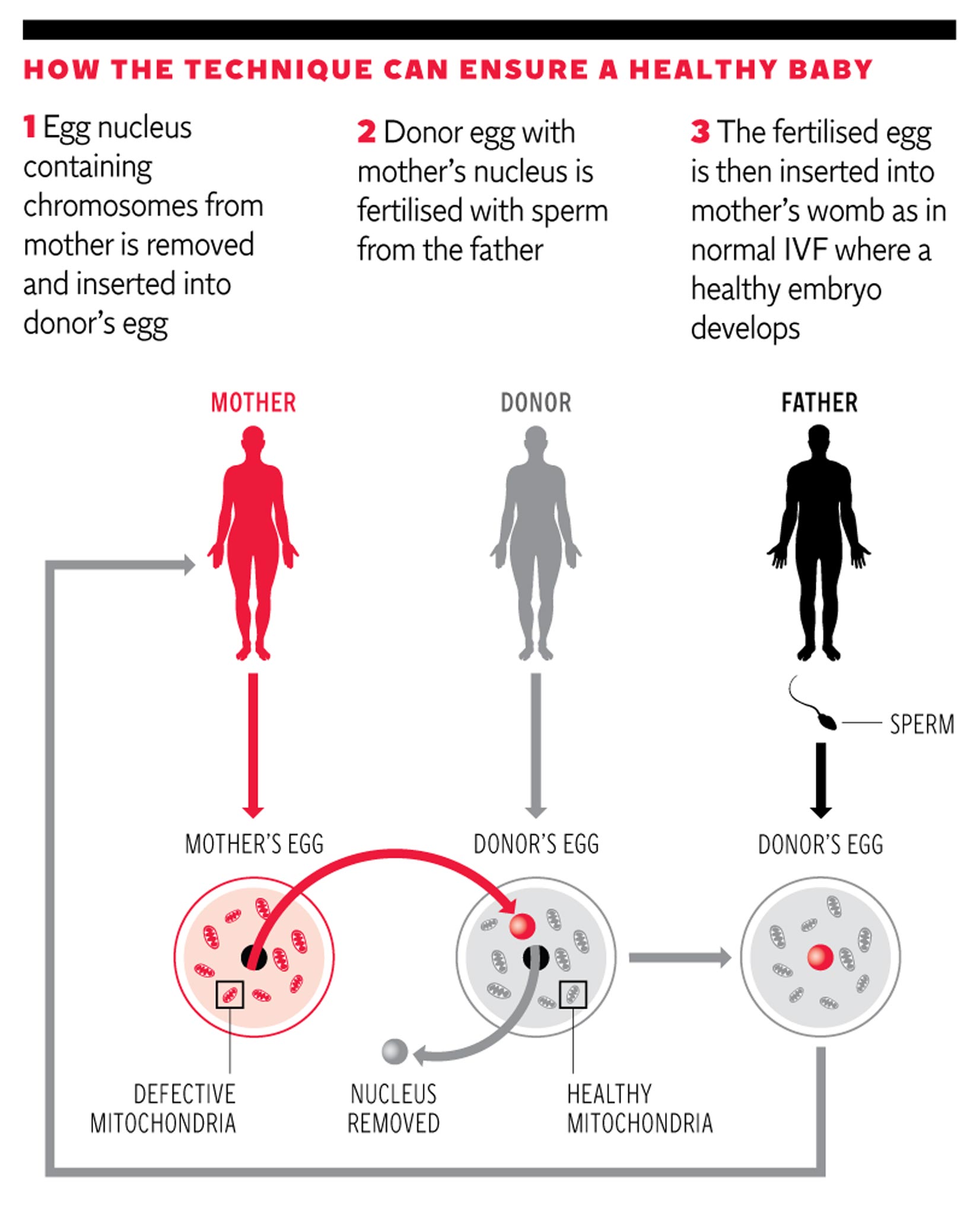Ministers take next step towards approving IVF procedures that would allow three-parent babies
Procedure designed to prevent babies born through IVF from inheriting mitochondrial defects

Draft regulations governing the creation of IVF embryos with genetic material from three people were published today by the Department of Health, which opens the way for Britain to become the first country in the world to permit DNA transfer between the eggs of two women.
The aim of the legislation, which is expected to be put before Parliament later this year, is to prevent mitochondrial disease in the IVF children of affected women by allowing the use of donated eggs from women who are free of genetic disorders of the mitochondria – the tiny “power packs” of the cell.
Children born from the procedure would inherit genetic material from their biological father and mother, as well as the small number of mitochondrial genes from the woman who donated the healthy egg. Supporters of the technique have denied that this would lead to “three-parent” babies.
The health department said that it has started a consultation process on the draft proposals and, when complete, it will decide on the form of the regulations that it will put before Parliament. An amendment to the 1990 Act governing IVF treatment has already exempted mitochondrial transfer in “prescribed circumstances”.
“The draft regulations set out which eggs and embryos will be permitted for use in mitochondrial donation treatment. The regulations describe the process which the eggs or embryos must have undergone and the circumstances in which the process must have been applied,” the consultation document states.

About one in 200 children are born each year with inherited mitochondrial defects. The symptoms – such as poor growth, organ disease, muscle weakness and learning problems – range from the relatively mild to the severe, and can be bad enough to be fatal.
By transferring the nucleus of an egg from an affected woman into the egg of a healthy donor, which has had its own nucleus removed, the risk of passing on the disorder to IVF children can be prevented. However, opponents argue that the technique amounts to dangerous tinkering with the genetic make-up of children.
David King, director of the pressure group Human Genetics Alert, said: “The techniques have not passed the necessary safety tests so it is unnecessary and premature to rush ahead with legalisation.”
However, Jeremy Farrar, director of the Wellcome Trust medical research charity, said: “We urge the Government to move swiftly so that Parliament can debate the regulations at the earliest opportunity and families affected by these devastating disorders can begin to benefit.”
Join our commenting forum
Join thought-provoking conversations, follow other Independent readers and see their replies
Comments
Bookmark popover
Removed from bookmarks